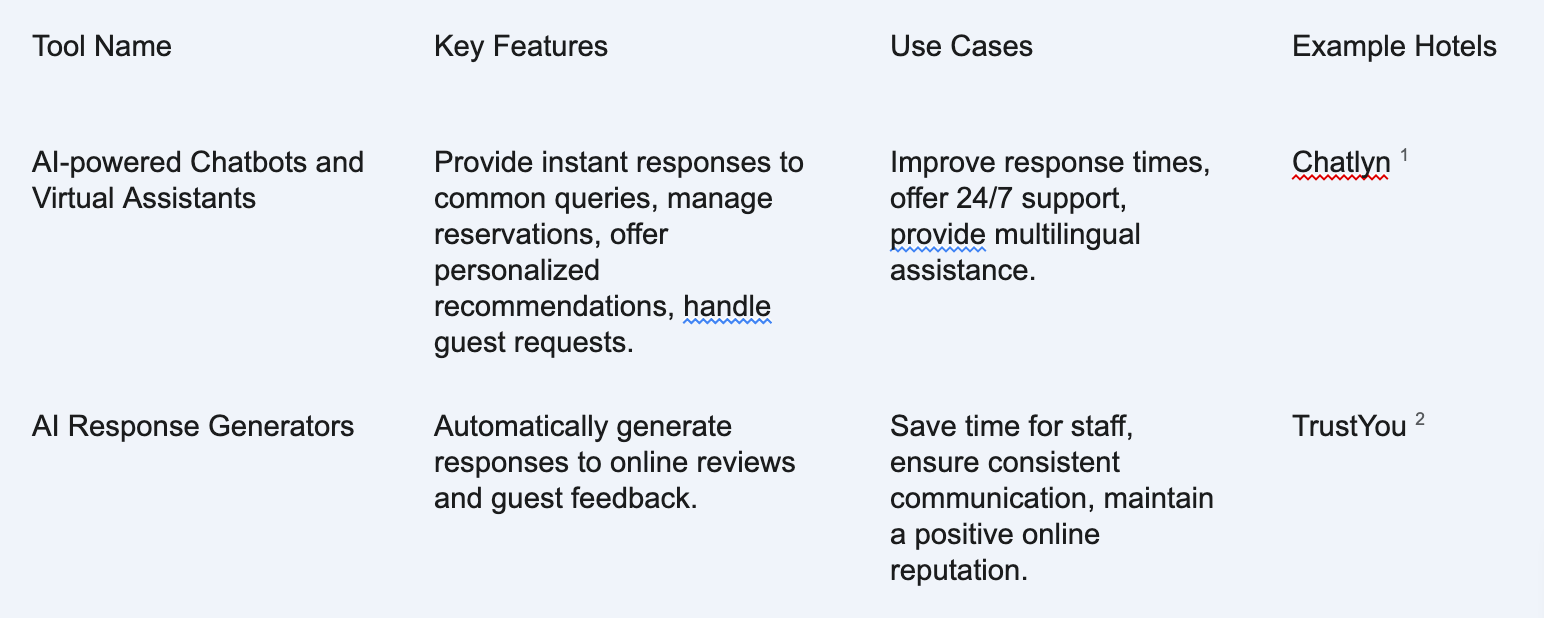2. AI-Driven Revenue Management and Optimization
These tools leverage AI to analyze data and optimize pricing strategies, helping hotels maximize revenue and profitability:
| Tool Name |
Key Features |
Use Cases |
Example Hotels |
| Allora |
Predictive engagement features to analyze guest behavior and preferences |
Optimize direct bookings, personalize offers, improve marketing campaigns |
N/A |
| Gamechanger by Duetto |
Predicts hotel profits by utilizing powerful analytics |
Forecast demand, create pricing strategies to boost revenue with flexible rates |
N/A |
AI-driven revenue management systems empower small hotels to make data-driven decisions that boost their bottom line. For instance, these systems can predict demand patterns, pricing fluctuations, and guest preferences, allowing hotels to maximize occupancy rates and room rates.
3. AI-Powered Guest Experience Personalization
These platforms focus on tailoring the guest experience by analyzing data and providing personalized recommendations:
| Tool Name |
Key Features |
Use Cases |
Example Hotels |
| Hotelier AI |
Guest management and CRM, providing valuable marketing insights |
Personalize marketing messages and promotions, enhance guest engagement, foster loyalty |
N/A |
| Myma.ai |
Personalized service automation to streamline guest interactions |
Offer tailored recommendations, anticipate guest needs, create memorable experiences |
N/A |
By using AI to personalize the guest journey, small hotels can foster loyalty and encourage repeat bookings. This can include personalized room settings, customized recommendations for dining and activities, and timely service delivery. Importantly, research shows that approximately 80% of hotels use, or plan to use, AI and data analytics to help them present guests with personalized offers, and when these tailored recommendations hit the mark, they can boost revenue and customer satisfaction.
4. AI-Enabled Smart Room Technology
These tools integrate AI directly into hotel rooms to enhance guest comfort and convenience:
| Tool Name |
Key Features |
Use Cases |
Example Hotels |
| Josh AI |
Smart home control features to enhance guest comfort |
Voice-activated room controls, personalized room settings, smart amenities |
N/A |
By incorporating AI-enabled smart room technology, small hotels can create a more modern and luxurious guest experience. For example, AI can enable voice-activated assistants in hotel rooms, allowing guests to control lighting, temperature, entertainment systems, and other amenities through voice commands.

